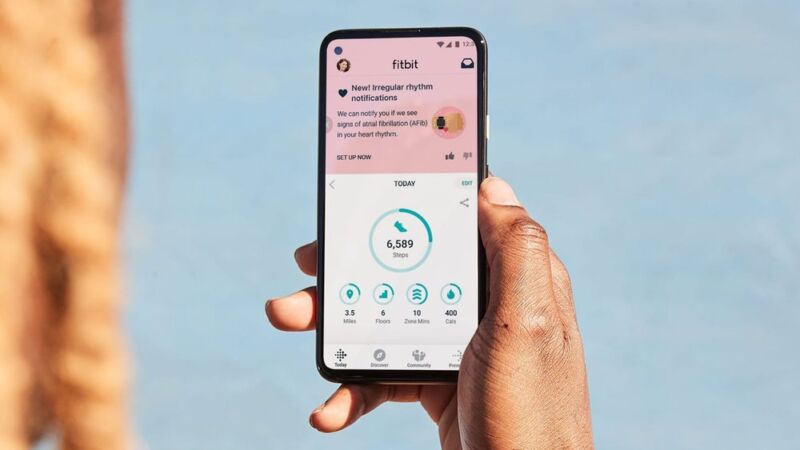
Google-owned wearable brand Fitbit announced Monday that it will soon introduce a new atrial fibrillation-detection feature to its devices.
According to a blog post from Google, Fitbit received clearance from the US Food and Drug Administration (FDA), paving the way for the feature to be deployed to Fitbit wearables in the near future.
Google cites data from a global disease study to state that atrial fibrillation affects around 33.5 million people around the world. Citing another study, it claims that those who suffer from atrial fibrillation have five times as much stroke risk as others.
While Fitbit devices previously allowed users to initiate a test for atrial fibrillation, this new feature would continually monitor users for signs, greatly increasing the chances that a health event will be recognized.
The blog post describes how the feature works:
When your heart beats, tiny blood vessels throughout your body expand and contract based on changes in blood volume. Fitbit’s PPG optical heart-rate sensor can detect these volume changes right from your wrist. These measurements determine your heart rhythm, which the detection algorithm then analyzes for irregularities and potential signs of atrial fibrillation.
It’s important to note that the Fitbit cannot diagnose heart conditions, but when users are notified that atrial fibrillation has been detected, they can go to the doctor for confirmation and medical care.
Fitbit isn’t the first company to offer this capability. The Apple Watch introduced a similar feature in recent years. Google has owned Fitbit since a 2019 acquisition, and has plans to develop a smartwatch that runs on Google’s Wear OS. To date, Fibit devices run on Fitbit OS.
Fitbit hasn’t said exactly when the feature will roll out; the company’s blog post simply says it’s coming “soon” in the United States.
https://arstechnica.com/?p=1847251

